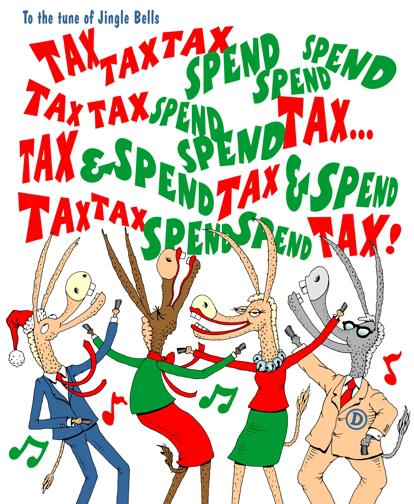
The caricature of 'tax and spend' misses the mark.
It's become a meme in Tea Party circles to denigrate "tax and spend" policy. The movement's thinkers argue that it is irresponsible, counterintuitive, and even illegal (some curiously suggest that the Constitution mandates a limited government) to take revenues from the public, only to spend them on the public.What's overlooked is that taxing and spending forms the very nucleus of what government is and has been since its origin in modern society. For instance, government provides a system of justice to maintain public safety and punish criminals. Every citizen pays a small sum for this particular function of government so that it will be available to any citizen in a time of need. Fighting fires, educating children, enforcing environmental regulations - all three work much more efficiently as functions of government than as products of the free market's "invisible hand." This is because the government has a vested interest in the common good, as opposed to the profit motive that drives the actions of a company. Notably, all three examples require taxing and spending to achieve the desired results.
So when members of the Tea Party complain about "Obama's tax and spend policies," they complain more fundamentally about the existence of government itself. For the laws of a nation to be respected and not toothless, some taxing and spending must occur to finance their enforcement. My question to the far right: what does a government without "tax and spend policies" look like?
Some will invariably reply that it looks like a business. But if anything, government should be run less like a business, not more. Its very usefulness lies in the fact that the motives and structures of government are differentiated from those of corporations. A corporation may indeed be more efficient than a federal agency. But, it is more efficient only at delivering profit to its shareholders. Taxpayers are not equivalent to investors; that is the critical distinction. The investment is compulsory and the desired result is an improved quality of life, something that is far less tangible than a dividend. In the words of Oliver Wendell Holmes (displayed on the IRS building), "Taxes are what we pay for civilized society."
Thoughts?
Note to readers: Weekly Roundup has skipped a week. The next episode will appear on Friday, September 16 if all goes well.

